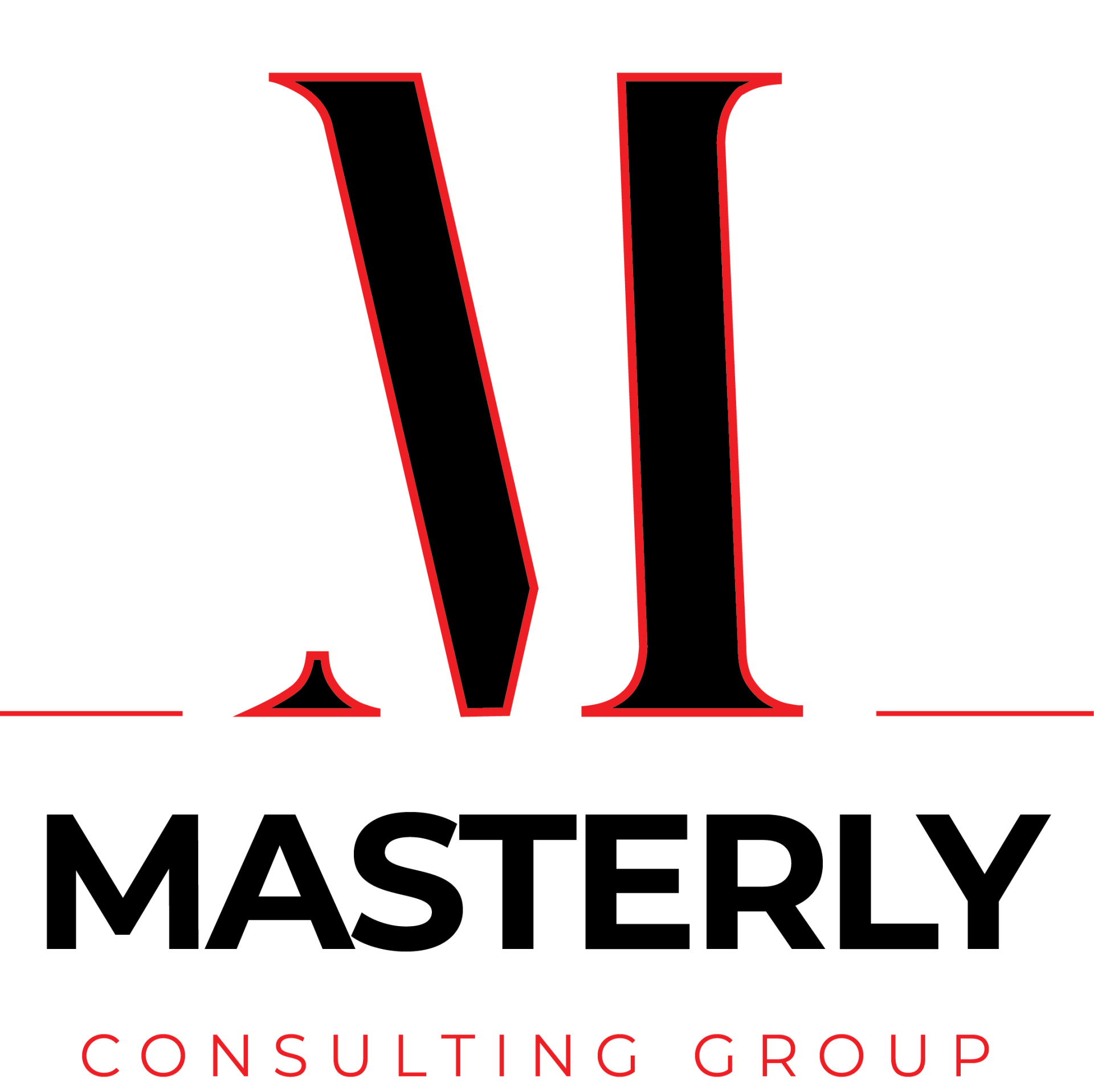The Executive Exit Strategy: A Coaching-Driven Path to What Comes Next
Thinking Beyond the Title: What’s After the Corner Office?
For many executives, stepping away from a long-held role can feel like stepping into the unknown. Yet, for those who prepare wisely, this transition can become a defining chapter—not the final one. Executive coaching helps leaders reshape the narrative, approaching exit not as a retirement, but as a redefinition. Whether you're planning a shift in two months or two years, strategic guidance can help clarify what comes next.
A Data-Informed Approach to Departure
Career decisions are often made under pressure or in isolation. A certified executive coach uses structured assessments and coaching conversations to uncover blind spots and identify distinctive strengths. These tools provide a clear, data-backed understanding of readiness, values, and goals. Instead of relying on gut instinct, leaders can align their transition plans with real feedback and reflective learning.
Coaching as a Bridge Between Roles
Executive coaching isn’t just for performance—it’s for transition. For executives at a career crossroads, coaching becomes the bridge between identity and aspiration. Coaching engagements are designed to support executives in exploring what fulfills them both personally and professionally. The coaching role here is not to dictate the next step, but to help leaders find their own way with greater self awareness and confidence.
Helping Leaders Reframe Their Purpose
Leaving a leadership role doesn’t mean leaving leadership behind. Coaching helps executives reframe their sense of purpose and impact. Through one-on-one coaching sessions, leaders are encouraged to explore how their skills and insights can be applied to new ventures, board roles, consulting paths, or creative endeavors. Leadership development continues—just in a new context.
From Influence to Legacy
Senior leaders often face the challenge of detaching from the influence they’ve wielded for years. A coaching program can support this emotional shift by focusing on legacy planning. Coaches help leaders articulate what they want to be remembered for and how they want to continue making a difference. The goal is systemic and sustainable change, both for the leader and for the organizations they support post-exit.
What Makes Coaching Different from Advice
Executive coaching services do not replace financial advisors or legal counsel. Instead, they offer a confidential space for processing change, clarifying values, and making decisions based on alignment—not pressure. A professional certified coach doesn’t offer easy answers but asks the questions that bring clarity. This external perspective is what makes coaching a game changer for executives planning what's next.
The Emotional Intelligence Advantage
Leadership transitions are emotional. Executive leadership coaching equips clients with tools to manage these emotions with composure. Emotional intelligence is not just about relationships—it’s also about internal regulation, resilience, and decision-making. Coaching engagements help leaders pause, reflect, and respond rather than react. It’s a learned skill that supports both personal growth and professional grace.
Developing New Behaviors for a New Phase
Exiting a high-level role means leaving behind daily structure, teams, and decision-making routines. Coaching helps leaders develop new behaviors that align with their next phase—whether it’s launching a nonprofit, pursuing board service, or taking time to reflect. Learning how to fill the space intentionally is a critical part of the coaching experience.
Clarifying Goals With the Help of a Coach
Often, executives only begin to explore their true goals once the exit is already underway. Coaching conversations create a space to explore these questions earlier—before decisions become final. Certified executive coaches use tested frameworks that support decision-making and confidence. As a result, leaders make choices that reflect who they are now, not just who they used to be.
Coaching in Practice: More Than Motivation
Coaching works because it focuses on action and accountability. It’s not therapy, mentoring, or performance review. A coaching practice is grounded in learning and development, driven by client goals, and shaped by mutual trust. Many executives describe coaching engagements as one of the few professional spaces where they can be completely honest—and truly heard.
Career Exit as a Strategic Initiative
Organizations recognize that executive exits affect more than the departing leader. These changes impact key stakeholders, team dynamics, and even brand reputation. Leadership coaching helps ensure the process is intentional and strategic, not reactive. It transforms the departure into a planned phase of leadership development rather than a disruption.
The Certified Coaching Standard
Working with a certified executive coach—especially one accredited by the International Coaching Federation—means engaging in a rigorous, ethics-driven process. Designations such as Professional Certified Coach (PCC) or Associate Certified Coach (ACC) reflect training, experience, and coaching skills that meet global standards. Leaders can trust that they’re receiving expert guidance that supports both organizational goals and personal clarity.
Navigating Organizational and Personal Identity
Executives are often deeply entwined with their organization’s success. Untangling identity from position is difficult but essential. Coaching engagements provide the psychological space to reflect on what parts of leadership are internal versus circumstantial. These insights empower leaders to build a future that feels authentic, whether inside or outside their former industry.
The Power of Long-Term Coaching Engagements
While some coaching programs are short-term, many executives benefit from long-term engagements that span several phases of transition. These relationships evolve alongside client growth, offering continuity through periods of uncertainty and change. Coaching relationships become a trusted resource, especially during the ambiguity of life after leadership.
Preparing for the Post-Exit Life
The months after a major career move can be disorienting. Coaching helps leaders prepare not just for the announcement or final day—but for the daily life that follows. From building structure to redefining priorities, coaching supports successful completion of the exit and momentum in the next chapter.
Serving as a Change Agent Beyond the C-Suite
Executives don’t stop being change agents just because they’ve stepped down. Coaching helps redirect influence in new, meaningful ways. Many former executives go on to support global organizations, serve as mentors, or become consultants. With strategic support, their leadership evolves—not ends.
Leveraging Experience for New Opportunities
A twenty year career doesn’t disappear at resignation. Executive coaching supports the transfer of professional experience into new environments. Whether working as an organizational consultant, launching a coaching practice, or teaching future leaders, coaching helps shape a strategy for meaningful impact.
Helping Leaders Help Others
Many coaching clients discover that their next calling is to help leaders themselves. Some pursue certification to become coaches. Others develop leadership development programs or work in human resources. These roles allow executives to multiply their legacy by investing in the growth of others.
Rebuilding Structure After Letting Go
One of the greatest challenges in transition is the absence of structure. Coaching helps rebuild routines, accountability, and direction. Through regular sessions and check-ins, clients gradually re-establish focus and develop goals that reflect their evolving values.
Coaching as Part of the Exit Timeline
Ideally, coaching begins well before an executive’s exit is official. By incorporating coaching into the transition timeline, leaders ensure that they leave well—and arrive prepared. Even if coaching begins after departure, it still provides critical value for processing, planning, and progressing forward.
The Global Network You Didn’t Know You Had
Coaches often connect clients with new networks, global organizations, and peer support. These connections can be career-shaping, especially when venturing into unfamiliar industries or roles. With coaching, leaders expand beyond their original organization and discover a global network of support and opportunity.
Making a Lasting Impact Through Coaching
Executives have the capacity to influence, inspire, and guide far beyond their corporate tenure. With executive coaching services, that influence becomes intentional, structured, and powerful. Coaching helps clarify legacy, uncover new goals, and guide the next chapter with clarity.

Turning Experience Into Impact Through Coaching and Training
Executives often leave their roles with decades of wisdom—but translating that into new value requires intentional development. Coaching helps leaders identify how their insights can evolve into structured training, mentorship, or thought leadership opportunities. Whether leading executive workshops or designing internal programs, many former leaders find renewed purpose in training others. With the guidance of a certified coach, executives gain the clarity and support to transform their experience into influence that extends well beyond their previous position.
Creating a Personalized Coaching Experience That Evolves With You
Every executive journey is unique—and so is the coaching experience designed to support it. A high-quality coaching experience goes beyond sessions and assessments; it adapts to the leader’s needs, pace, and goals as they evolve. Whether navigating uncertainty or seeking clarity for the next chapter, coaching provides a consistent, confidential space for growth. This tailored approach allows clients to reflect, plan, and act with greater confidence as they design their future beyond the boardroom.
Redefining Success Through Lifelong Education and Coaching
For many executives, leaving a leadership role opens the door to renewed focus on personal development and education. Coaching encourages a mindset of lifelong learning—helping leaders explore new subjects, industries, and areas of interest with curiosity and purpose. Whether pursuing formal education, attending leadership programs, or acquiring certifications, the coaching process supports informed decisions that align with evolving passions. Education becomes not just a next step, but a strategic tool for reinvention and sustained relevance.
Coaching That Drives Meaningful Client Growth During and After Transition
Executive coaching is not just about reflection—it’s about forward movement. The most impactful coaching engagements are those that foster measurable client growth, both personally and professionally. Whether it’s identifying new goals, launching a consulting practice, or developing leadership in others, coaching creates space for growth that aligns with evolving values. As clients step into new roles or explore uncharted paths, coaching ensures their progress is intentional, supported, and sustainable.
Partnering with Human Resources to Support Executive Transitions
Executive exits don’t just impact the individual—they influence teams, culture, and succession planning. That’s why human resources plays a critical role in aligning coaching with organizational strategy. When HR partners with a certified executive coach, they help ensure the transition is smooth, intentional, and values-driven. This collaboration supports leadership continuity, talent development, and long-term organizational effectiveness—while also empowering the departing leader to move forward with purpose and clarity.
Coaching Skills That Support Strategic and Personal Growth
Effective coaching skills are at the heart of every successful transition. Certified coaches apply a blend of empathy, inquiry, and structured frameworks to help executives navigate uncertainty with clarity. These skills are especially critical when leaders are redefining purpose, identity, and direction post-exit. From facilitating reflection to helping map out action steps, strong coaching skills ensure each session delivers insight, direction, and measurable progress. It’s this precision and adaptability that make coaching a trusted asset during pivotal career moments.
Self Awareness as the Foundation for Intentional Career Transitions
One of the most valuable outcomes of executive coaching is increased self awareness. For leaders facing a major career shift, understanding their motivations, values, and blind spots is essential. Coaching engagements help uncover what truly drives fulfillment beyond the role or title. By building self awareness, executives are better equipped to make decisions that align with both their personal goals and long-term vision—ensuring that what comes next is purposeful, not reactive.
Elevating Transitions Through Proven Coaching Skills
Navigating a successful exit requires more than just experience—it demands reflection, strategy, and the right support. Executive coaches bring specialized coaching skills that help leaders uncover blind spots, clarify goals, and move forward with confidence. These skills include active listening, powerful questioning, and the ability to hold space for honest self-discovery. Whether preparing for retirement, launching a new venture, or pursuing board opportunities, coaching skills play a vital role in shaping thoughtful, values-driven decisions.
Setting the Standard with Executive Leadership Coaching Backed by the International Coaching Federation
Executives preparing for their next chapter deserve guidance rooted in proven methods and global standards. Executive leadership coaching accredited by the International Coaching Federation (ICF) ensures a high level of professionalism, ethics, and measurable outcomes. ICF-certified coaches bring structure, accountability, and deep listening to every engagement—creating space for clarity and transformation. For leaders facing major decisions, this level of coaching helps navigate transitions with confidence and precision, backed by a framework recognized worldwide.
Bridging the Gap Between Experience and Impact Across All Levels of Leadership
For over a decade, executive coaching has played a pivotal role in helping senior leaders align their personal and professional lives during periods of transition. Many executives with backgrounds in general management, education, or consulting experience are now seeking to channel their expertise into developing leaders and driving systemic impact within new environments. A certified coach—often with a background as a management consultant or in organization development—helps facilitate learning, promote organizational effectiveness, and guide organization’s leaders through intentional organizational change. Through coaching, leaders not only gain new skills rooted in human behavior but also explore how to influence across various organizational levels while supporting talent development in ways that enrich their professional lives well beyond the C-suite.
Let’s Talk About What’s Next
At Masterly Consulting Group, we understand that the next phase of leadership is just as important as the one you’re leaving. Our executive coaching services are designed to help leaders exit with clarity and enter their next chapter with purpose. Whether you're ready to start planning or still exploring options, we're here to guide you through it.
Call (888) 209-4055 to schedule your free consultation today. We’ll discuss how a coaching-driven strategy can help you plan your next step with confidence, clarity, and intention.







